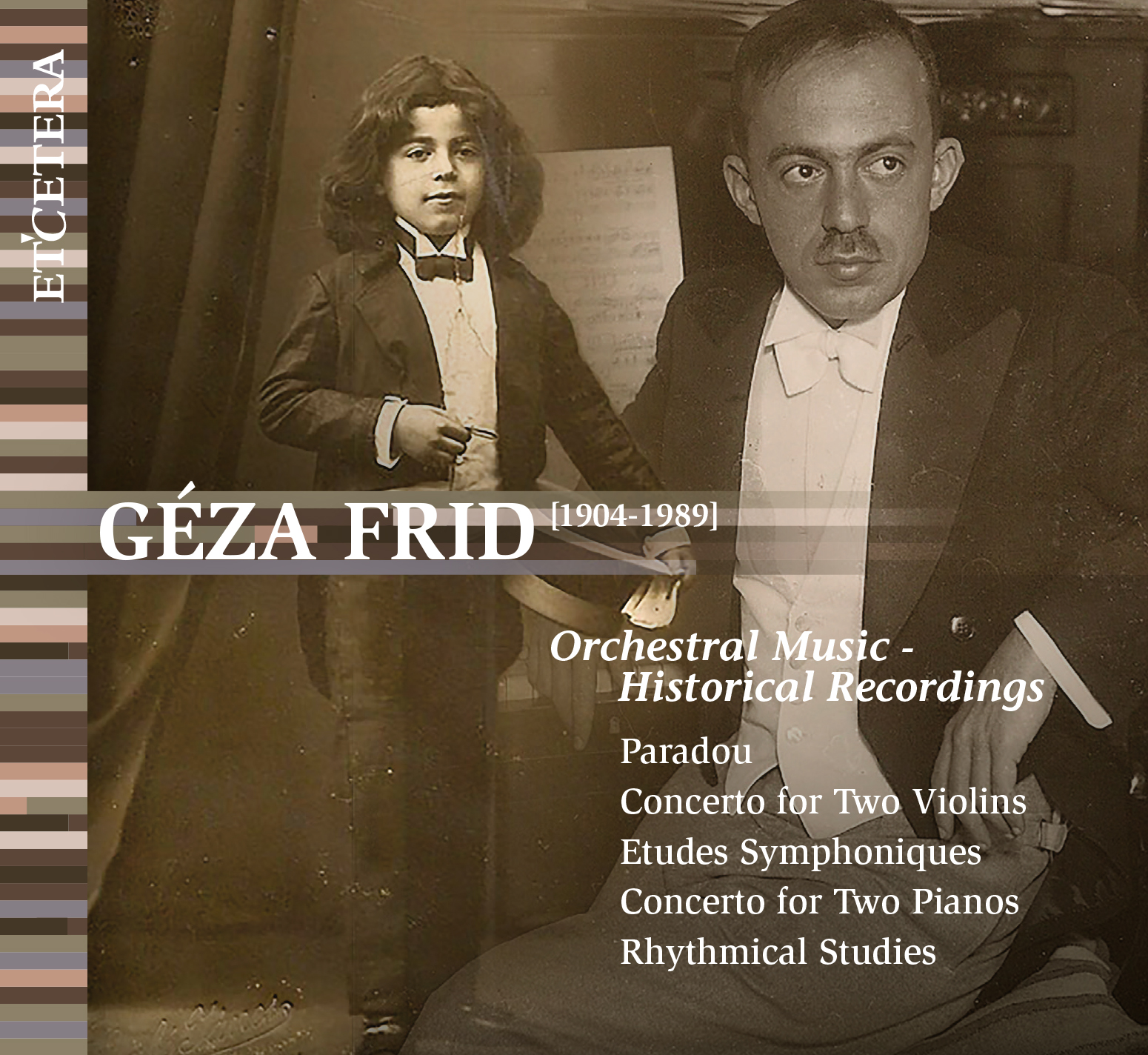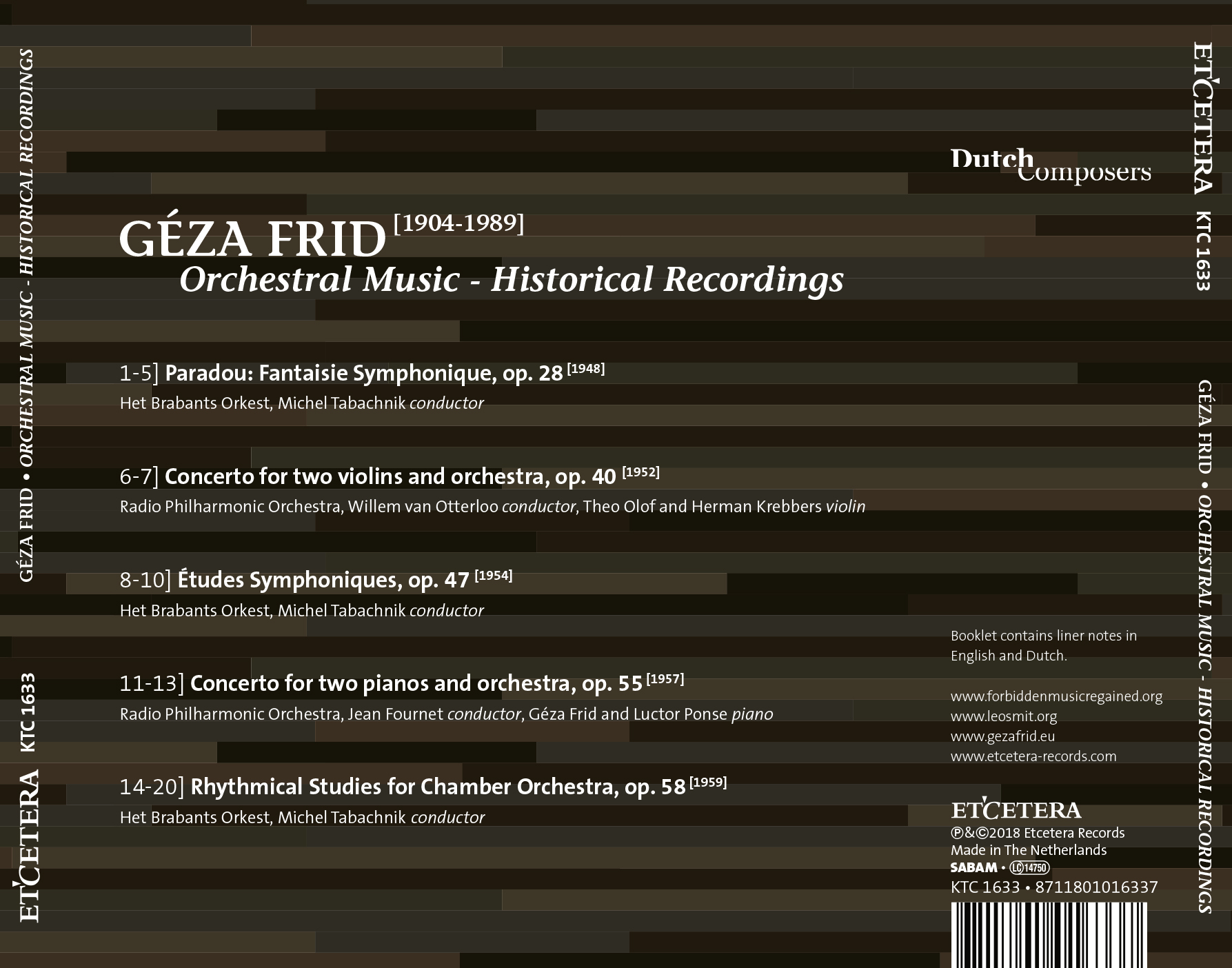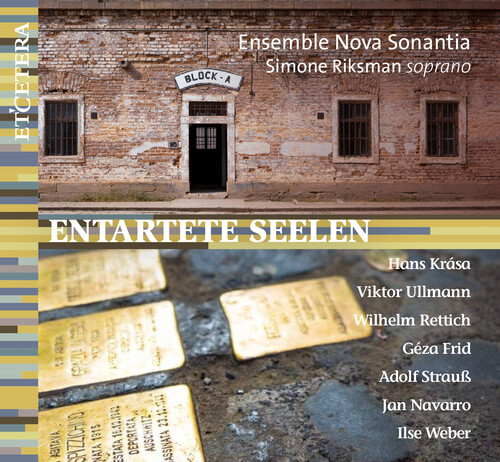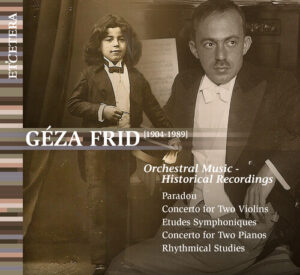1. Paradou: Fantaisie symphonique, Op. 28: Prélude
Composer: Géza Frid
Artist(s): Het Brabants Orkest
2. Paradou: Fantaisie symphonique, Op. 28: Choral
Composer: Géza Frid
Artist(s): Het Brabants Orkest
3. Paradou: Fantaisie symphonique, Op. 28: Fugue
Composer: Géza Frid
Artist(s): Het Brabants Orkest
4. Paradou: Fantaisie symphonique, Op. 28: Romance
Composer: Géza Frid
Artist(s): Het Brabants Orkest
5. Paradou: Fantaisie symphonique, Op. 28: Épilogue
Composer: Géza Frid
Artist(s): Het Brabants Orkest
6. Concerto for Two Violins and Orchestra, Op. 40: I. Introduzione (decisamente) – Andantino pastorale
Composer: Géza Frid
Artist(s): Radio Philharmonic Orchestra, Theo Olof, Herman Krebbers
7. Concerto for Two Violins and Orchestra, Op. 40: II. Introduzione (liberamente – quasi marcia) – Allegro molto
Composer: Géza Frid
Artist(s): Radio Philharmonic Orchestra, Theo Olof, Herman Krebbers
8. Études symphoniques, Op. 47: Obsession
Composer: Géza Frid
Artist(s): Het Brabants Orkest
9. Études symphoniques, Op. 47: Repos
Composer: Géza Frid
Artist(s): Het Brabants Orkest
10. Études symphoniques, Op. 47: Fuite
Composer: Géza Frid
Artist(s): Het Brabants Orkest
11. Concerto for Two Pianos and Orchestra, Op. 55: I. Allegro martellato
Composer: Géza Frid
Artist(s): Radio Philharmonic Orchestra, Luctor Ponse, Géza Frid
12. Concerto for Two Pianos and Orchestra, Op. 55: II. Lento assai
Composer: Géza Frid
Artist(s): Radio Philharmonic Orchestra, Luctor Ponse, Géza Frid
13. Concerto for Two Pianos and Orchestra, Op. 55: III. Allegretto giusto
Composer: Géza Frid
Artist(s): Radio Philharmonic Orchestra, Luctor Ponse, Géza Frid
14. Rhythmical Studies for Chamber Orchestra, Op. 58: I. Allegro con brio
Composer: Géza Frid
Artist(s): Het Brabants Orkest
15. Rhythmical Studies for Chamber Orchestra, Op. 58: II. Allegretto
Composer: Géza Frid
Artist(s): Het Brabants Orkest
16. Rhythmical Studies for Chamber Orchestra, Op. 58: III. Tempo giusto
Composer: Géza Frid
Artist(s): Het Brabants Orkest
17. Rhythmical Studies for Chamber Orchestra, Op. 58: IV. Andante, moderato
Composer: Géza Frid
Artist(s): Het Brabants Orkest
18. Rhythmical Studies for Chamber Orchestra, Op. 58: V. Presto corrente
Composer: Géza Frid
Artist(s): Het Brabants Orkest
19. Rhythmical Studies for Chamber Orchestra, Op. 58: VI. Deciso
Composer: Géza Frid
Artist(s): Het Brabants Orkest
20. Rhythmical Studies for Chamber Orchestra, Op. 58: VII. Molto allegro
Composer: Géza Frid
Artist(s): Het Brabants Orkest






Reviews
There are no reviews yet.